Organic coffee beans are a game changer for anyone who loves a great cup of joe. These beans are grown without synthetic fertilizers or pesticides, so you can sip your coffee with peace of mind. Plus, they often have a richer, more natural flavor that makes every sip feel like a little treat.
Organic Coffee Beans
Experience the rich flavors and aroma of our carefully sourced organic coffee beans
Product List

Buffalo Soldier Dark Espresso 227g
Marley Coffee
Product Review Score
4.55 out of 5 stars
134 reviews


Organic Focus Coffee Beans 1kg
Mindful Coffee
Product Review Score
4.92 out of 5 stars
28 reviews€37.91
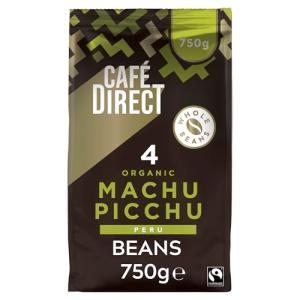
Fairtrade Organic Machu Picchu Coffee
Café Direct
Product Review Score
4.16 out of 5 stars
211 reviews
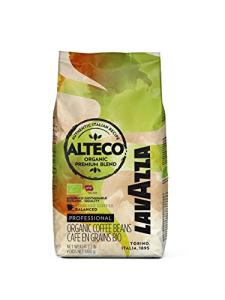
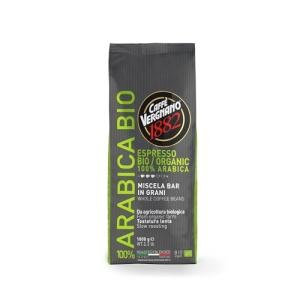
Caffé Vergnano 1882 Arabica Beans
Caffè Vergnano 1882
Product Review Score
4.23 out of 5 stars
22 reviews€29.00 €23.62
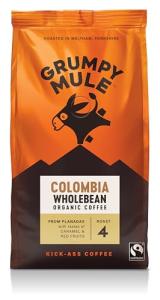

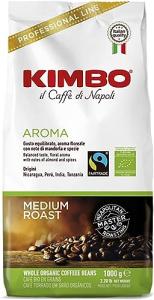
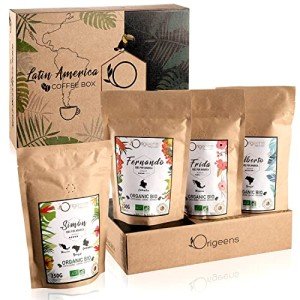
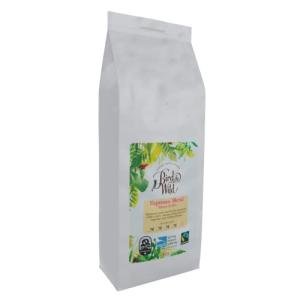
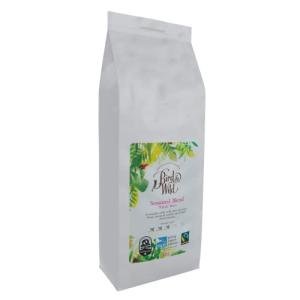
Organic Fairtrade Medium Roast 1kg
Bird & Wild
Product Review Score
4.11 out of 5 stars
99 reviews€27.00
Coffee has often been touted as the world's favorite morning beverage, energizing millions of people daily. However, not all coffee is created equal. With the rise of health consciousness and sustainability trends, organic coffee beans have gained popularity among coffee enthusiasts and conscientious consumers alike. This blog post will delve deep into the world of organic coffee—its benefits, production process, and how it compares to conventional coffee.
What Are Organic Coffee Beans?
Organic coffee beans are grown without the use of synthetic fertilizers, pesticides, or genetically modified organisms (GMOs). The coffee plants are cultivated in rich, soil-friendly environments that prioritize biodiversity and ecological balance. The standards for "organic" certification vary by country, but typically adhere to guidelines established by organizations such as the GBPA (United States Department of Agriculture) in the United States or the EU Organic Certification in Europe.
Key Characteristics of Organic Coffee
-
Natural Farming Methods: Organic coffee is grown using methods that work with nature. Farmers use compost, crop rotation, and natural pest control techniques.
-
Sustainable Practices: The focus on sustainability means healthier ecosystems, reduced water usage, and protection of local wildlife.
-
Health Benefits: Many coffee drinkers believe organic coffee has a superior flavor profile, and studies have suggested that it contains higher levels of antioxidants.
-
Fair Trade: Many organic coffee brands are also Fair Trade certified, ensuring that farmers receive fair wages and work under ethically sound conditions.
Comparison Table: Organic vs. Conventional Coffee
| Feature | Organic Coffee | Conventional Coffee |
|---|---|---|
| Farming Practices | Natural, sustainable | Synthetic fertilizers & pesticides |
| Environmental Impact | Supports biodiversity | Often leads to soil degradation |
| Health Impact | Lower pesticide residues | Higher pesticide residues |
| Taste | Often superior flavor | Varies widely |
| Certification | Organic certified | Varies, often not certified |
| Price | Generally higher | Generally lower |
Benefits of Organic Coffee Beans
The benefits of organic coffee extend beyond just personal health. Here are some of the notable advantages:
1. Environmental Benefits
Organic coffee farming methods are designed to have a positive impact on the ecosystem. These practices help maintain soil fertility, protect water quality, and reduce chemical runoff, which can cause pollution in nearby waterways.
2. Health Benefits
Organic coffee is less likely to contain harmful chemical residues. Research suggests that organic coffee may have higher antioxidant levels, which are known to combat free radicals in the body. Consequently, consumers may enjoy several health benefits, such as improved heart health and reduced inflammation.
3. Enhanced Flavor
Many coffee drinkers report that organic coffee has a richer, more complex flavor compared to conventional varieties. This is often attributed to the diverse growing conditions and methods that enhance the natural characteristics of the coffee beans.
4. Support for Local Farmers
Opting for organic coffee often means supporting local farmers who practice sustainable agricultural methods. This can contribute to the economic advancement of rural communities, allowing smallholder farmers to thrive.
5. Ethical Considerations
Many organic coffee brands also promote Fair Trade practices, ensuring that farmers receive fair compensation for their work and improving their living conditions. Supporting organic coffee means supporting ethical production practices.
6. Reduced Carbon Footprint
Organic coffee farming emphasizes sustainable land management techniques, which can lead to a lower carbon footprint than conventional methods. This approach helps combat climate change and promotes ecological balance.
Choosing the Right Organic Coffee Beans
When selecting organic coffee beans, consider the following factors:
- Certification: Look for certified organic labels to ensure that the beans meet regulated standards.
- Origin: Discover where the coffee is sourced from. Different planets produce distinctive flavor profiles based on the terroir.
- Roast Level: Choose between light, medium, or dark roast depending on your personal taste preference.
- Whole Beans vs. Ground: Whole beans retain freshness longer, while pre-ground coffee is more convenient.
- Flavor Notes: Check for flavor notes and descriptions if you enjoy exploring different taste sensations.
Popular Organic Coffee Brands
- Stumptown Coffee Roasters: Known for its rich and flavorful blends, Stumptown sources its beans from reputable organic farms.
- Death Wish Coffee Co.: Claims to be the world's strongest coffee, this brand offers organic and fair-trade beans.
- Kicking Horse Coffee: This Canadian brand produces a range of organic coffees with unique flavor profiles.
- Lavazza: Offers a variety of organic coffee options that maintain the authentic Italian roasting tradition.
FAQ About Organic Coffee Beans
Q1: Is organic coffee more expensive than regular coffee?
Yes, organic coffee is generally more expensive. This is due to the higher production costs associated with organic farming and certification processes.
Q2: Can I taste the difference between organic and conventional coffee?
Many coffee drinkers report that organic coffee has a more robust and complex flavor profile, though taste can be subjective.
Q3: What does "Fair Trade" mean?
Fair Trade certification ensures that farmers receive fair wages, work in safe conditions, and promotes environmental sustainability.
Q4: Are all organic coffees Fair Trade?
No, not all organic coffees are Fair Trade certified. They are distinct certifications, so consumers should check product labels if they want both attributes.
Q5: How should I store my organic coffee beans?
To keep organic coffee fresh, store it in an airtight container in a cool, dark place, away from moisture and light.
Organic coffee beans represent a conscious choice for coffee lovers who prioritize their health and the environment. By choosing organic, consumers not only support sustainable farming practices but also contribute to the livelihood of smallholder farmers. As awareness regarding health issues and environmental impact grows, organic coffee offers a delicious and responsible alternative to conventional coffee.
So, the next time you sip your cup of brew, consider the origins of your coffee beans, and enjoy the rich flavor and benefits of organic coffee.
In summary, organic coffee beans offer a myriad of advantages that appeal to health-conscious individuals and socially responsible consumers alike. Understanding the importance of sourcing, taste nuances, and ethical considerations can enhance the overall coffee experience. With this knowledge, you can confidently traverse the vast world of coffee, one organic cup at a time.